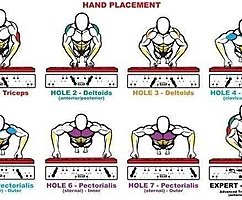How to plan a budget! Instructions.
 Bashny.Net
Bashny.Net

If you do not plan budget, in fact invite unnecessary debts and deprive themselves of the opportunity to make savings. These steps will help you learn how to make a budget and control your spending.
Steps
✔ Keep track of income and expenses
1. Determine your total income. You have a fixed salary and you know how much to take home each month? You are a freelancer and salary varies from month to month? A clear understanding of how much you earn - the most important thing for a successful budget.
2. Determine how you spend your money. What you need to pay the bills each month? You every Friday out with friends somewhere or dinner once a week go to the movies? Knowing where your money is going, you can better monitor them.
3. Fold the regular expenses and subtract them from your paycheck. It turns a negative number? If so, you clearly do not live within its means. If money remains, divide them into several groups:
"Flexible" money. About 10-20% of the difference between the salaries and recurrent costs should be ready, if you suddenly have to for something to pay more than expected. This can happen with utility bills, if gasoline prices rise suddenly, if you flat tire or something else.
Savings. Ideally, you should set aside 30% of their wages, even though 10% (if you do it all the time) is not bad. Put the money in the contingency fund (4-6 times more of your monthly expenses), and then start saving for investment.
Money to spend - what is left after deducting savings and "flexible" money. This is the money that you spend on clothes, food away from home and other entertainment. If you realized how little money you have you want to cry, then you need to learn how to cut costs.
✔ Creating a budget
1. Place the budgetary and financial objectives. They should be short and long term. The first include: every month not to spend more than a certain amount each month or postpone certain amount. The latter include: the ability to make a down payment for a car or a house. You need a purpose, it will stick to a budget.
2. Make a list of all that you have to pay. This includes the most important thing - rent, electricity, heating. Let these costs in the budget will be the most important.
3. Use the software. Programs like Quicken or Microsoft Money has built-in tools for working with a budget.
✔ Maintain budget
1. Do not go out of the budget. It sounds obvious, but easy to get out of the budget even when it is. Spend your money wisely and think about what the money is going.
2. Keep a journal. If you only just created the budget, the daily recording costs you simplify your tasks. Keep track of repeated purchases, which can be easily avoided, as hedgehog morning trip to the cafe for coffee.
3. Do not assume that suddenly get the money. Do not take into account potential sources of income such as a Christmas bonus or refund of taxes. In the budget, you should include only the money that will get exactly.
4. Leave the debit / credit card at home. When you got somewhere, very easy (and tempting) to spend much. Do not do it! Big score easily bring you out of the budget.
5. Take the money all at once for a week. If you want every week to spend $ 250 or more, go to the ATM machine on Monday and remove all the money immediately. Ran out of money? All.
✔ A few ways to stick to a budget
1. Understand the difference between luxury and necessity. Determine what your budget "is necessary, and that" I want to. " Let the need to stand in your budget are at the forefront, and if money is left - let yourself somewhere out or go shopping.
2. Reduce the high costs. Often it is not very pleasant, but the most effective way to stay within budget. If you drive every year somewhere on vacation, think about how to make this year to stay at home. If you smoke, think about how you can quit.
3. Pay less taxes. If you file a tax return every year, try to make better use of itemized deductions.
4. Osporte assessment of your home. If you are a homeowner and you have the relevant evidence, you may be able to cut income property contesting the value that the appraiser gave your property.
5. Stay one step ahead of inflation. Over time, inflation increases the cost of living. The annual growth of 3% in 24 years will double the cost of the whole. If your income increases, do not spend on luxuries as long as you are sure that you can always stay one step ahead of inflation.
Sample budget
Salary: $ 2600.00
Recurrent costs:
Rent $ 1,100
Mobile $ 45
Food $ 200
Different cards $ 125.00
Account $ 150.00
Mortgage payments $ 150.00
Machine $ 385.00
Gasoline $ 80.00
Total - $ 2235
$ 2600 - $ 2235 (recurrent costs) = $ 365
$ 365 - $ 36.5 ("flexible" money 10% of salary - regular expenses) = $ 328.50
$ 328.50 - $ 130 (savings of 5% of the salary) = $ 198.5
$ 198.5 - the money that you until the next paycheck can do what you want.
Tags
See also
NASA will receive more money from the US government than planned
How to behave with children from 3 to 18
Infographics
Detailed Budget average American family
From silicon metal to SSD: how to create solid-state drives OCZ
New year's resolutions

















